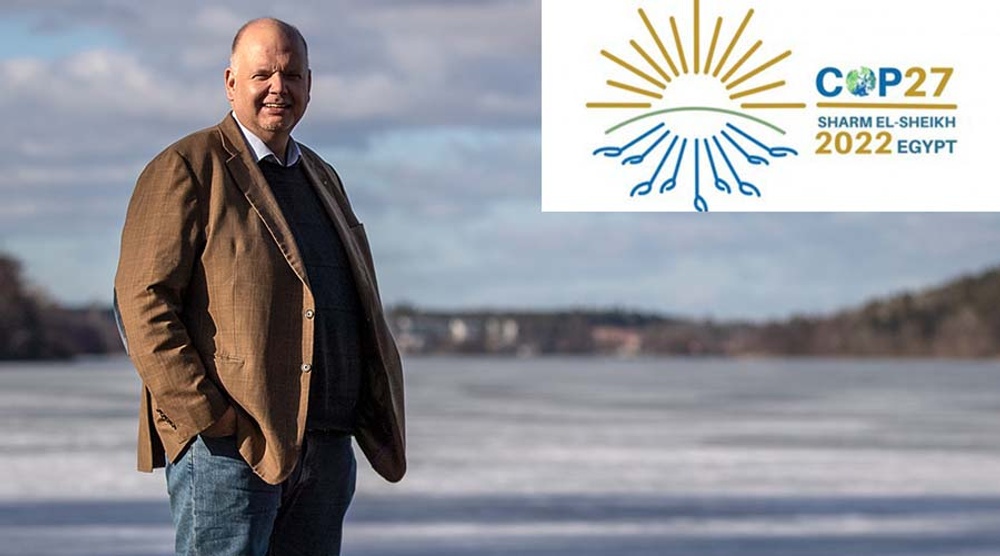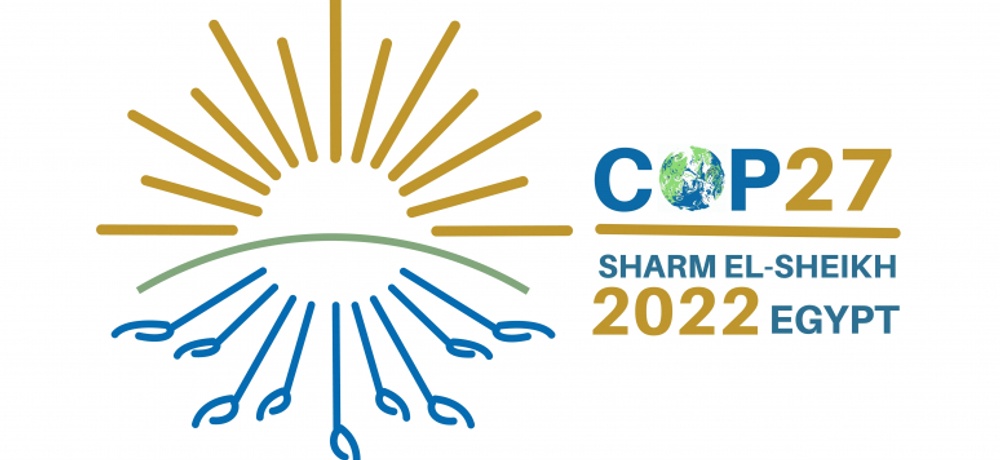COP27 summary: “I want to see more examples”
 Pär Larshans, Head of Sustainability at Ragn-Sells
Pär Larshans, Head of Sustainability at Ragn-SellsDuring two weeks in November, the UN's annual climate conference (COP27) was held in Sharm El-Sheikh, Egypt. We asked Pär Larshans, Head of Sustainability at Ragn-Sells, to give his view of this year's COP. His answer: policymakers need more good examples to dare to include a circular focus in future action plans.
What are your COP27 conclusions?
I believe that the current geopolitical situation makes it very challenging to succeed with major wins, we had an agreement at the end, even if it was to set up a fund to have the rich countries pay the cost of the effects of global warming to developing countries. A small win was to not lose the 1.5 degree ambition and to not ease the previous agreements from past COP’s. EU was very clear; they would not sign any agreement that would be a single step in the wrong direction.
Businesses have in many ways come much further than politics. Companies have realised that their future profitability is based on the business being sustainable for a long time and changing rapidly. I see a huge interest to demonstrate unity within the business community and the ICC secretary general was clear, we will not step back from the 1.5 degree ambition. Circularity is almost not at all mentioned in the agreement, but in the side sessions and in the pavilions, there were a lot of circular talks. And for the first time agriculture has been part of the talks, and this is promising. In this matter, circular solutions will have the potential to both reduce the carbon emissions and reduce the risk of overshooting any of the planetary boundaries as well.
What can you tell us about Ragn-Sells’ participation this year?
A lot of bilateral meetings and very important contacts have been made, and yes – I’m convinced that circularity soon will be part of the NDC’s (National Determined Contributions) to reach the ambitions set in the Paris agreement. Circularity was the main theme in all Ragn-Sells presentations, and we showcased six different material flows.
I hope that in the years to come we will start to see NDC’s including circular ambitions. The challenge though is that today everybody talks about SCOPE 1, 2, and 3 that all target our linear thinking; reducing the use of fossil fuels.
Circularity, and investing in innovations, is a SCOPE 4 activity that focus on supporting the avoidance of emissions somewhere else. This scope encompasses huge potential for generating a positive climate impact and is a key focus area for Ragn-Sells. SCOPE 4 is currently not addressed in the agreement, but when we have raised the topic, we have understood that there are a lot of initiatives ongoing to set a SCOPE 4.
Already when we have extracted the raw materials from the ground and done the first process step, we have used up to 90% of the CO2 footprint that the final product will have. Therefore, the longer we can keep the resources in circulation, the bigger the positive impact will be. We need a mind-shift and to rethink the way we view waste. Waste is simply resources that need to be sorted. And how to sort the resources depends on the state of the material.
What do you hope for in the year to come?
I want to see more examples that show decision-makers and businesses the potential of increased circularity as a powerful tool in the fight against climate change!
Ragn-Sells will in the year to come continue to focus on showcasing more of our circular solutions. Like Havbruk, a Norwegian example of how a circular solution can provide raw materials and energy from fish “poop", while at the same time enabling a doubling of the fish farming production due to that the risk for eutrophication is reduced when the fish sludge is collected from the fish farms with our circular solution.
I also believe that the finance sector will step up considerably in the coming years to protect their investments. Enabling circular material flows is an effective action to take to increase the supply of raw materials that reduces geopolitical risks, costs, and CO2e emissions.
Links to broadcasted seminars can be found here: https://www.ragnsells.com/what-we-do/events/cop27/
About Ragn-Sells Group
The environmental company Ragn-Sells converts waste into raw materials that can be used over and over again. Ragn-Sells drives the transition to a circular economy through solutions that reduce its own and other actors' environmental and climate impact. Ragn-Sells wants to be living proof that caring for the earth and business go hand in hand. Ragn-Sells is a family owned corporate group founded in 1881. The company operates in five countries and employs 2,500 persons. In 2021, Ragn-Sells’ turnover was SEK 7.6 billion. www.ragnsells.com
